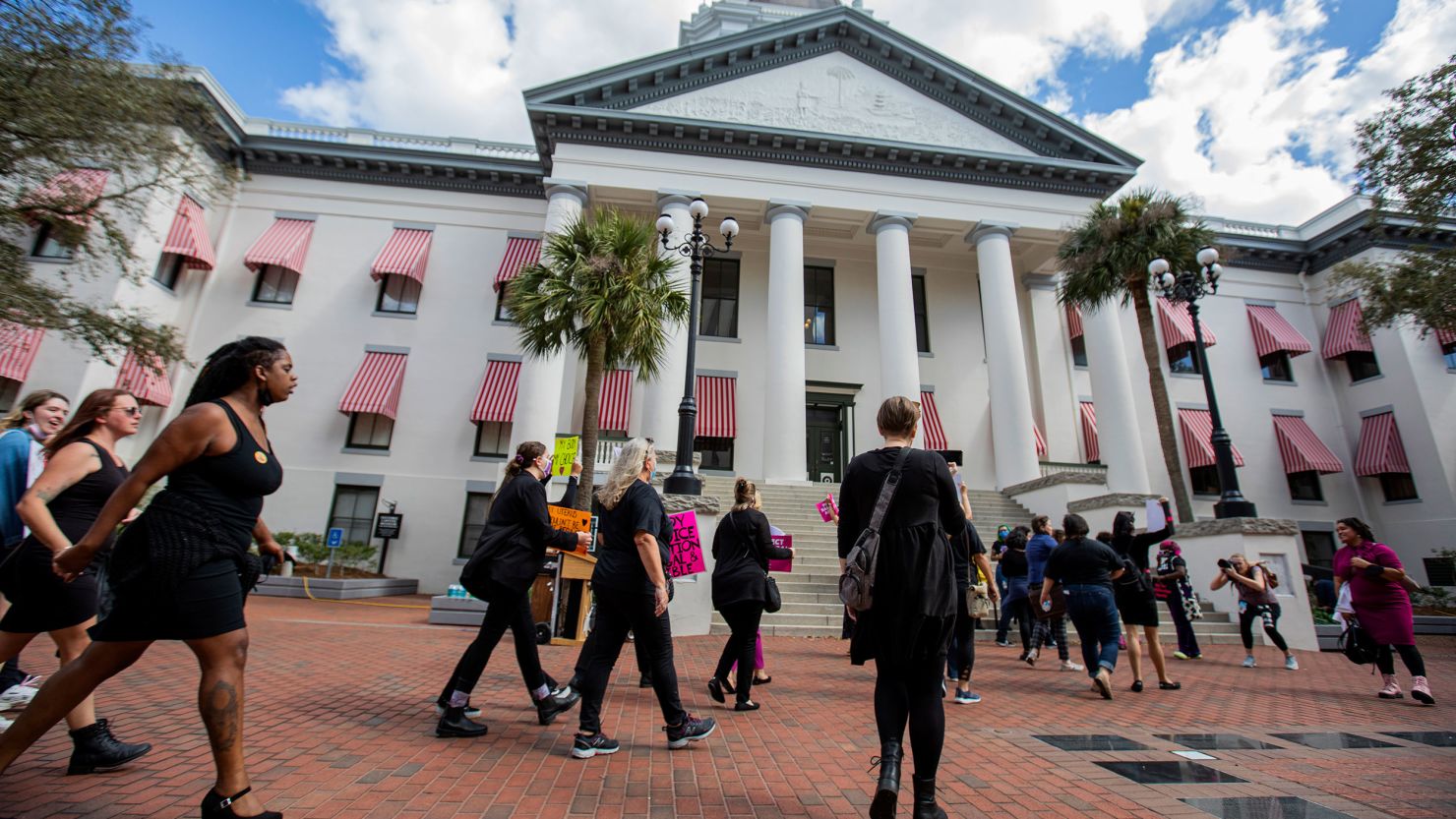Florida’s state Senate on Monday passed a bill that would ban most abortions in the state after the gestational age of six weeks, or about four weeks of pregnancy.
The bill’s advance, which still needs to pass the state’s GOP-led House, comes one year after Gov. Ron DeSantis signed a 15-week ban into law. The new legislation likely further burnishes the conservative credentials of DeSantis, a potential 2024 presidential candidate, and it was met with outrage by state Democrats, two of whom were arrested during a protest near the state Capitol Monday night.
The current bill would impose restrictions on telehealth abortions and medication. It would include exemptions for women facing life-threatening harm while pregnant and victims of rape, incest and human trafficking.
The bill targets both physicians who perform abortions and those who “actively participate in” them, and should the bill become law, any person who violates it could be charged with a third-degree felony.
The “Heartbeat Protection Act” passed the Florida Senate in a 26-13 vote.
A protest over the bill near the state Capitol resulted in the arrests of 11 people who were charged with trespassing after a warning, Tallahassee police said. Florida Democrats said state party Chairwoman Nikki Fried and Florida Senate Minority Leader Lauren Book were among them.
“As the Democratic leader in the Florida Senate, it’s my job to a lead this incredible group of 11 Democrats, other than myself, to fight against these extreme policies,” Book told CNN on Wednesday. ‘Women will die as a consequence of this piece of policy.”
Other abortion rights advocates say the Florida bill unfairly seeks to ban abortions before many even know they are pregnant.
“This bill will unfairly and disproportionately impact people who live in rural communities, people with low incomes, people with disabilities, and people of color,” Kara Gross, the legislative director and senior policy counsel at the American Civil Liberties Union of Florida, said in a statement.
“Hundreds of thousands of pregnant people will be forced to travel out of state to seek the care they need. Many people will not even know they are pregnant by six weeks, and for those who do, it is unlikely they will be able to schedule the legally required two in-person doctor’s appointments before six weeks of pregnancy,” Gross said.
The White House has also criticized the pending bill.
“The President and Vice President believe women should be able to make health care decisions with their doctors and families – free from political interference. They are committed to protecting access to reproductive care, and continue to call on Congress to restore the protections of Roe v. Wade in federal law,” White House press secretary Karine Jean-Pierre said in a statement when the bill was first introduced.
State Sen. Clay Yarborough, one of the bill’s Republican sponsors, said “unborn children deserve the strongest protections possible under our laws.”
The legislation underscores the ongoing efforts across the country to restrict access to abortion in a post-Roe world. Other Republican-led states have also pursued six-week abortion bans that have been met with legal challenges.
CNN’s Alessandra Freitas contributed to this report.

